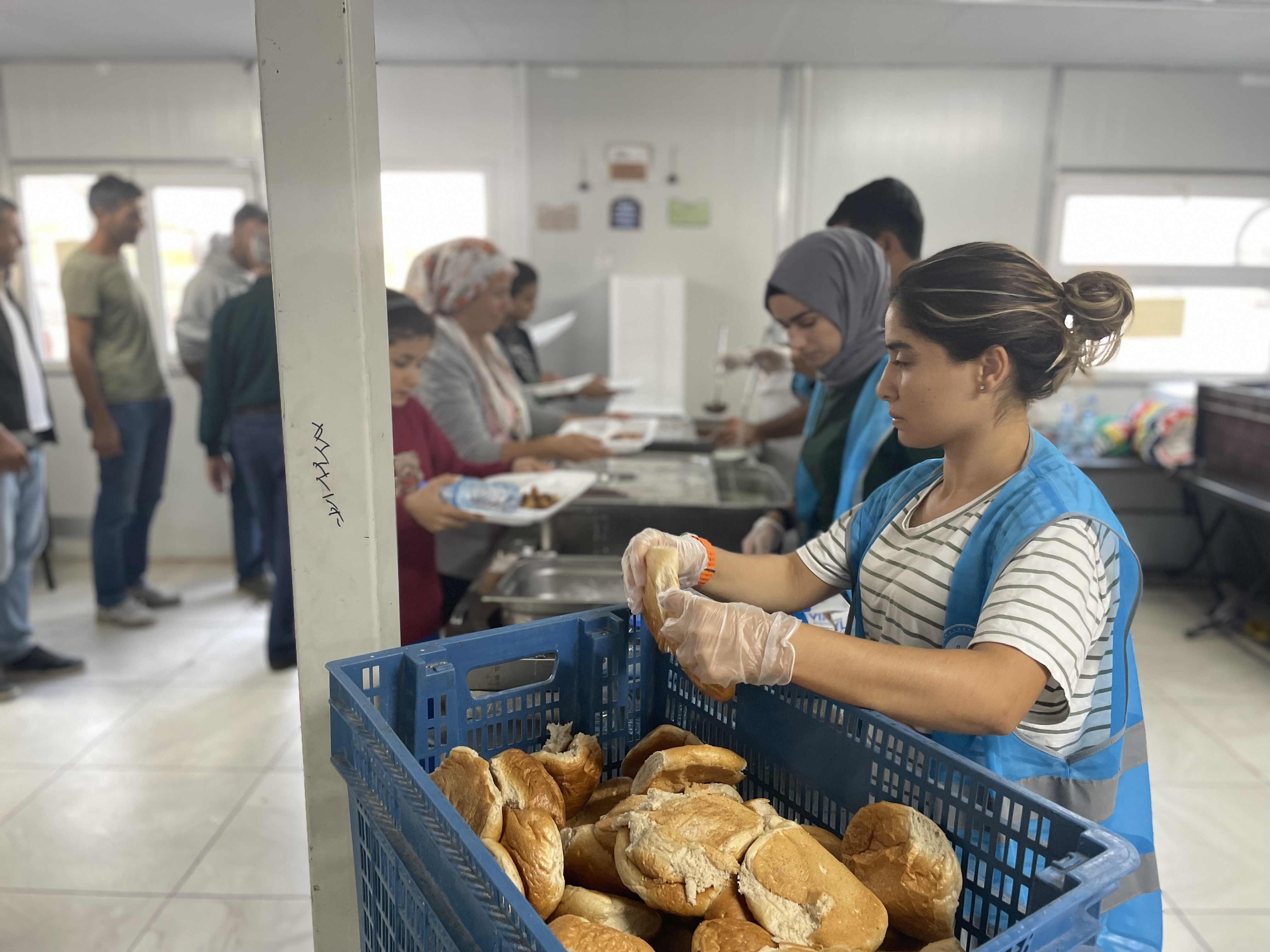
In order to monitor the situation of the area affected by the Turkey-Syria
earthquake which occurred in February 2023, and to evaluate the activities
of the humanitarian organizations, an observation team of the Disaster
Response Task Force of WCRP/RfP Japan visited southern Turkey for a week
in late October.
WCRP/RfP Japan has been offering humanitarian support to the people in
the affected area by funding aid organizations and religious institutions.
The interfaith group has contributed around seventeen million yen (approximately
one hundred and ten thousand U.S. dollars). The group will work on the
second aid package based on the fact-finding mission report.

On October 24th, the three members team visited the Gaziantep office of
the Türkiye Diyanet Foundation. WCRP/RfP Japan funded the Foundation through
Tokyo Camii, an Islamic organization in Japan. The team toured a facility
with fifteen hundred temporary housing units that the Foundation manages.
Although the number of evacuees living in the facility had dropped from
three thousand at the peak, two thousand still live in the temporary houses.
An older woman said that the Turkish authorities had urged her to return
home because the damage to her house was minor, but she was declining because
of the fear for the future.
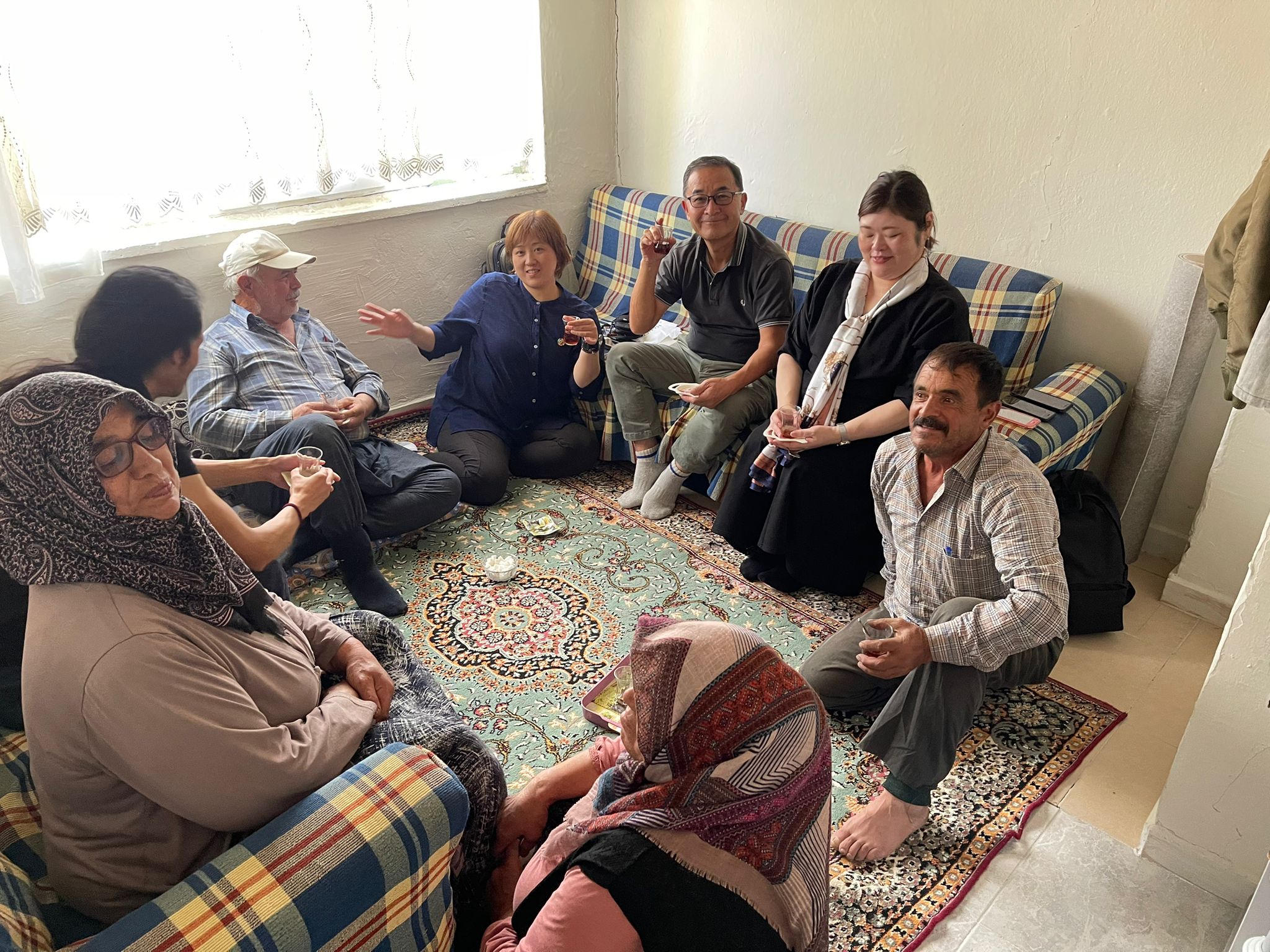
The next day, the team visited village chiefs of two villages in a mountainous
area. A Japanese NGO, Pacific Asia Resource Center Interpeoples’ Cooperation,
PARCIC, provides aid to the villages. Most villagers live in container
houses or tents. Winter is just around the corner, with the area buried
under two meters of snow and temperatures dropping to minus 30 degrees
Celsius. There is great concern as water and power outages are expected
due to the severe winter climate. The two village chiefs said they needed
heaters, electric stoves, and carpets.
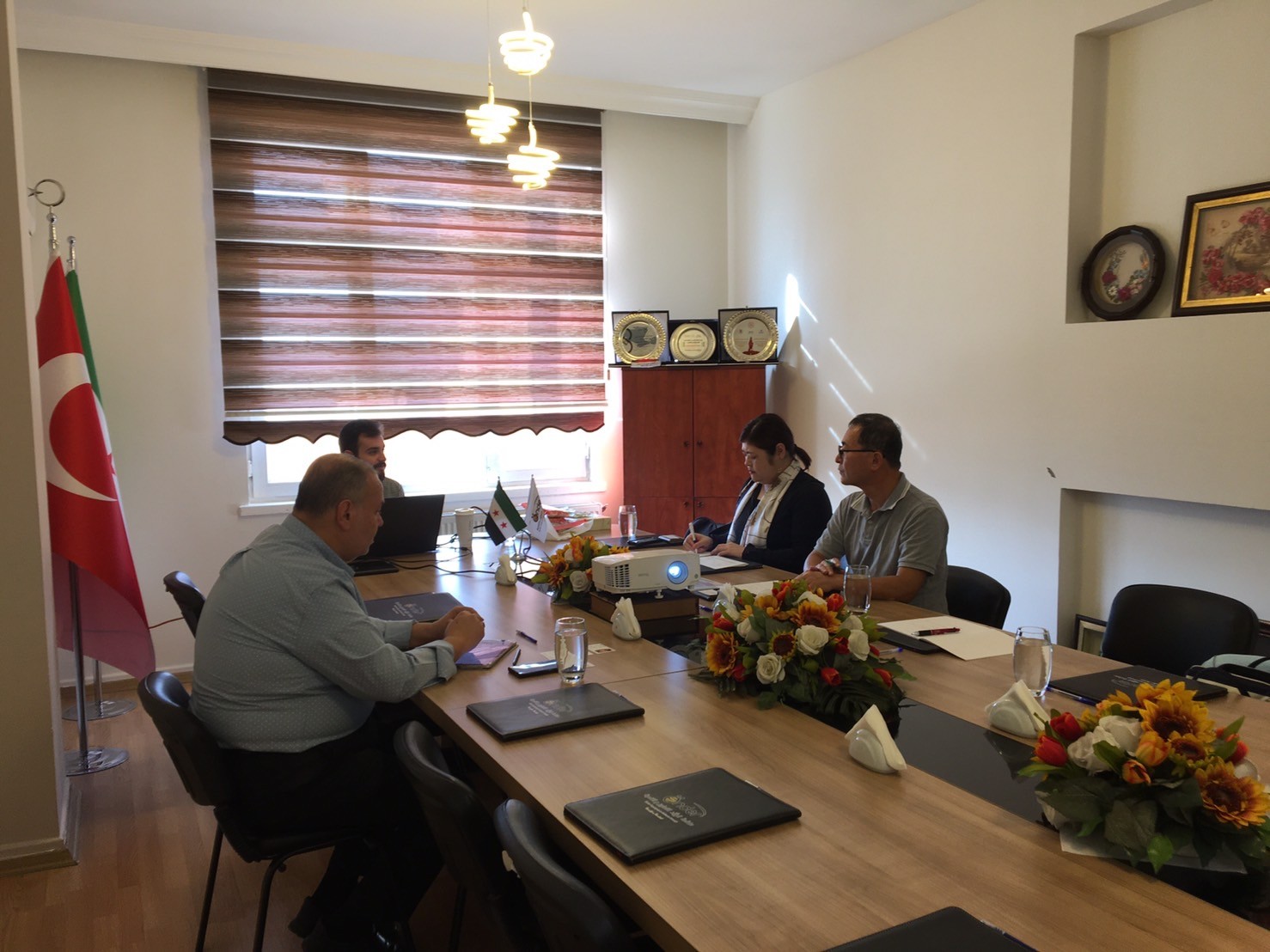
The following day, the team visited the Önder Organization for Cooperation
and Development headquarters. Mr. Najeeb Dadam, who reported from the field
at the September online seminar, and his father, Mr. Abdulrahman Dadam,
the chairman of Önder, greeted the three. Önder is an organization that
strives to develop human resources who will carry the future with Syria's
reconstruction in mind. Four floors of the five-story headquarters building
are open to the public. They are used as spaces for children and adults
to engage in various learning and activities, including language studies,
drama, painting, science, embroidery, beauty training, and space experiences.
The organization is aiming to establish a medical support center to perform
therapy and a university in Syria.
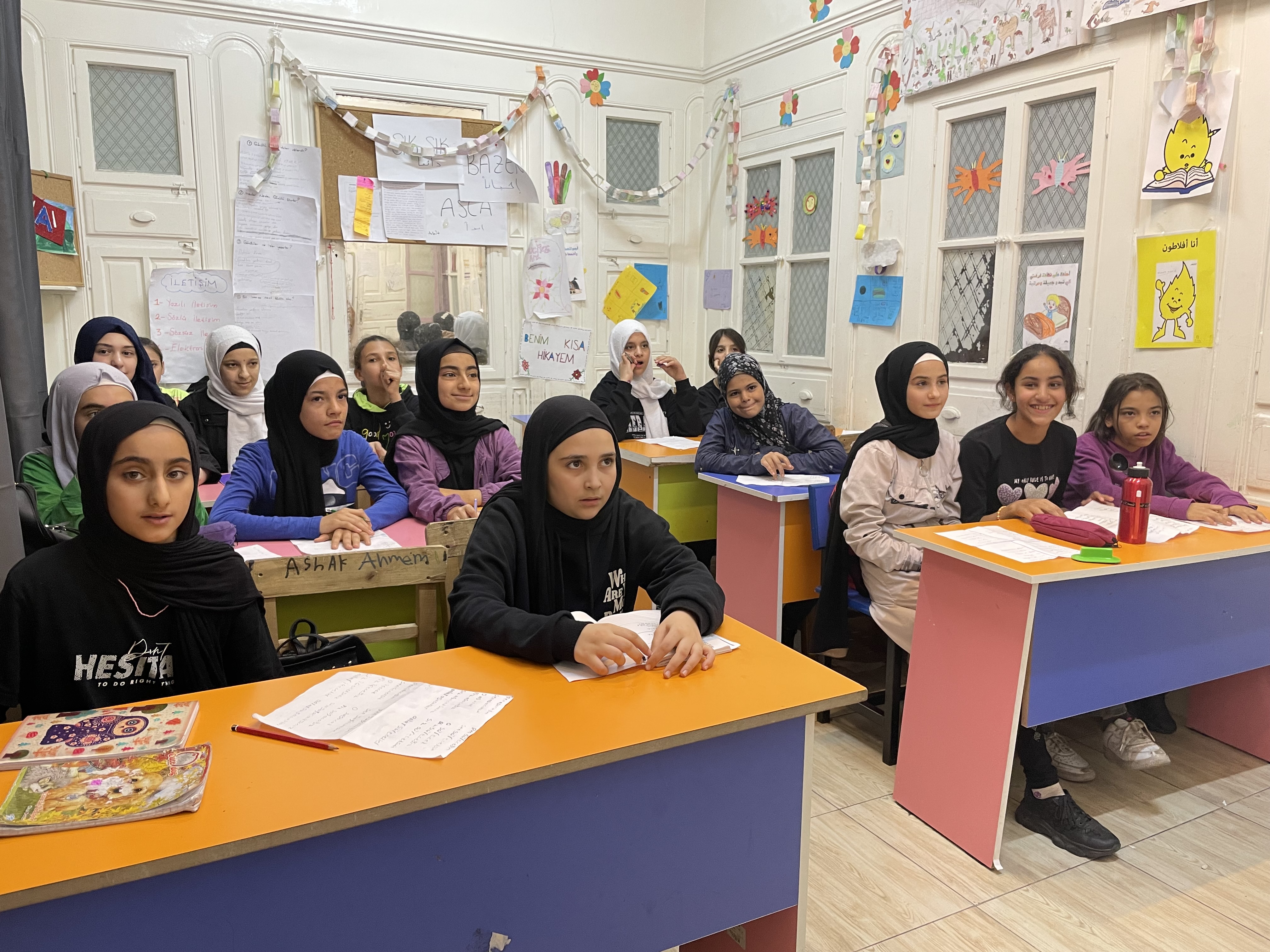
In the afternoon of that day, the team visited Kids Rainbow, which supports
children from Syria in an area with the highest concentration of people
from Syria in Gaziantep. Many of those have temporary residence permits.
Some don't have any permissions at all. Because they don't have refugee
status, they can't move freely within Turkey and can only take illegal
jobs. Approximately 60% of children living in this area don't attend school.
Around one hundred forty children between six and thirteen have been registered
to Kids Rainbow. They participate in various activities in two shifts:
morning and afternoon. They use five classrooms to provide psychological
support, Turkish language learning, music, painting, and film screenings.
They want to focus on providing psychological support to children, and
they feel that this is even more necessary after the earthquake.
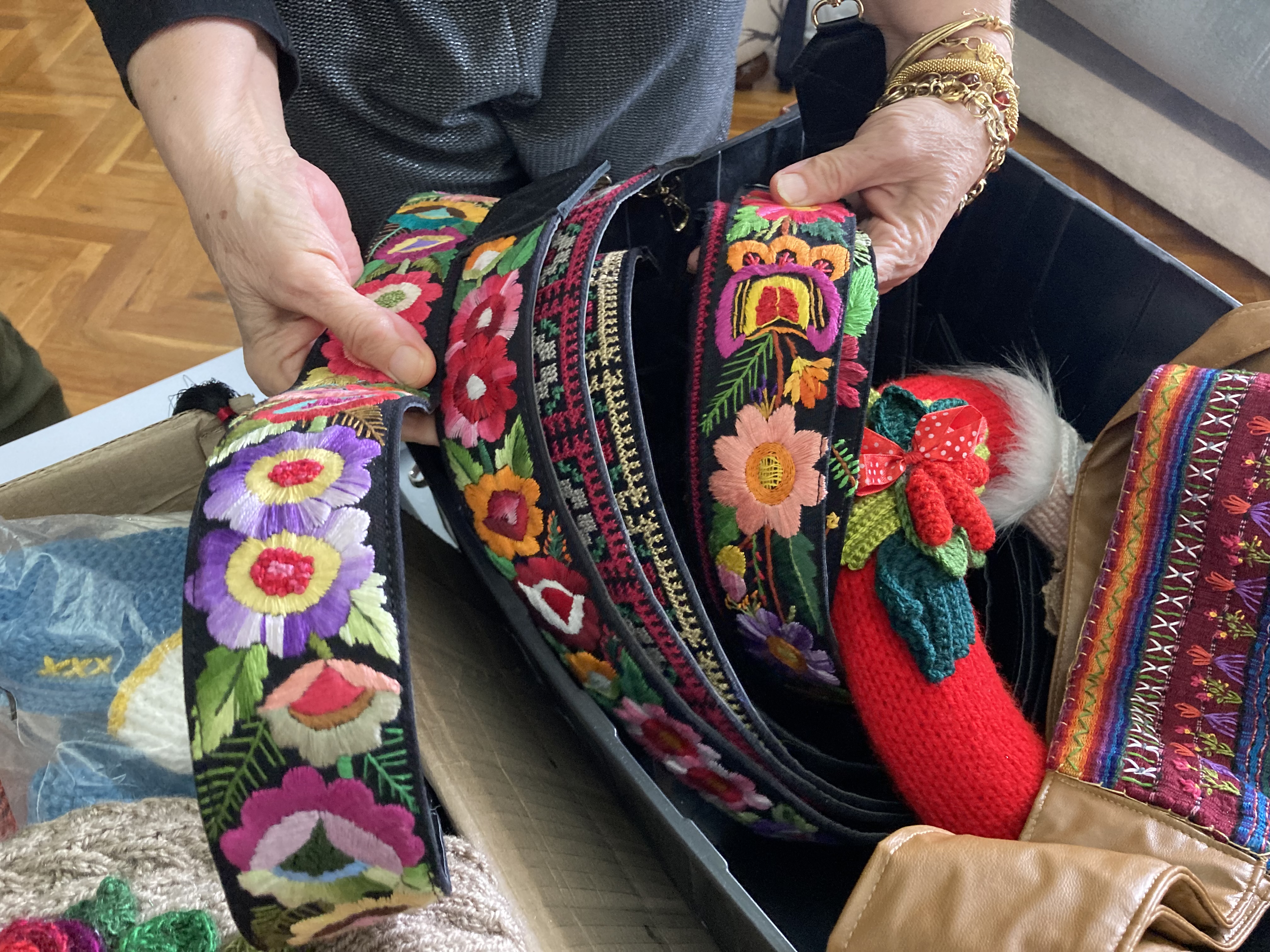
The next day, the team visited the home of a woman in Gaziantep, who worked
with around 20 widowed women to create and sell embroidery and handicrafts
to support their lives. A Japanese NPO, Stand with Syria Japan, introduced
her to the team.
Later that day, the team headed to Hatay Prefecture, where the NPO Association
for Refugees (AAR) operates. The prefecture, which borders Syria, is in
the most peripheral part of the disaster area. The team observed that the
percentage of people living in tents seemed higher than in other regions
they had visited. Most likely, it was because the area receives less aid
due to its geographical location. They visited the following three aid
organizations.
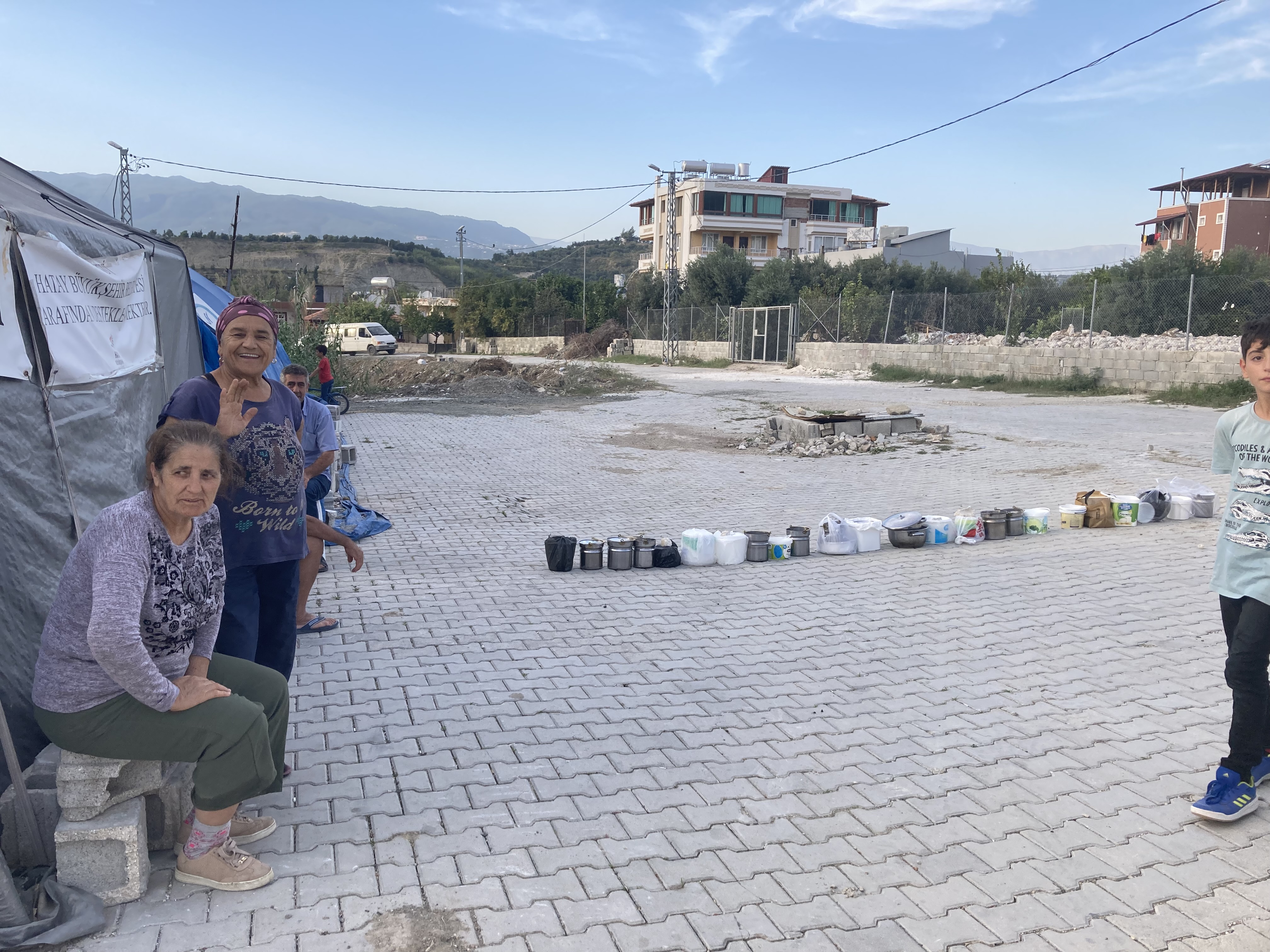
First, the team visited Civil Society Action Network Association, "Sivil
Alan Hareket Ağı Derneği (SAHA)" in Antakya. SAHA aims to create a
network of organizations active in the region to help people in difficult
situations maintain their living conditions. SAHA is trying to make its
activities more efficient and sustainable by uniting and coordinating local
aid organizations.
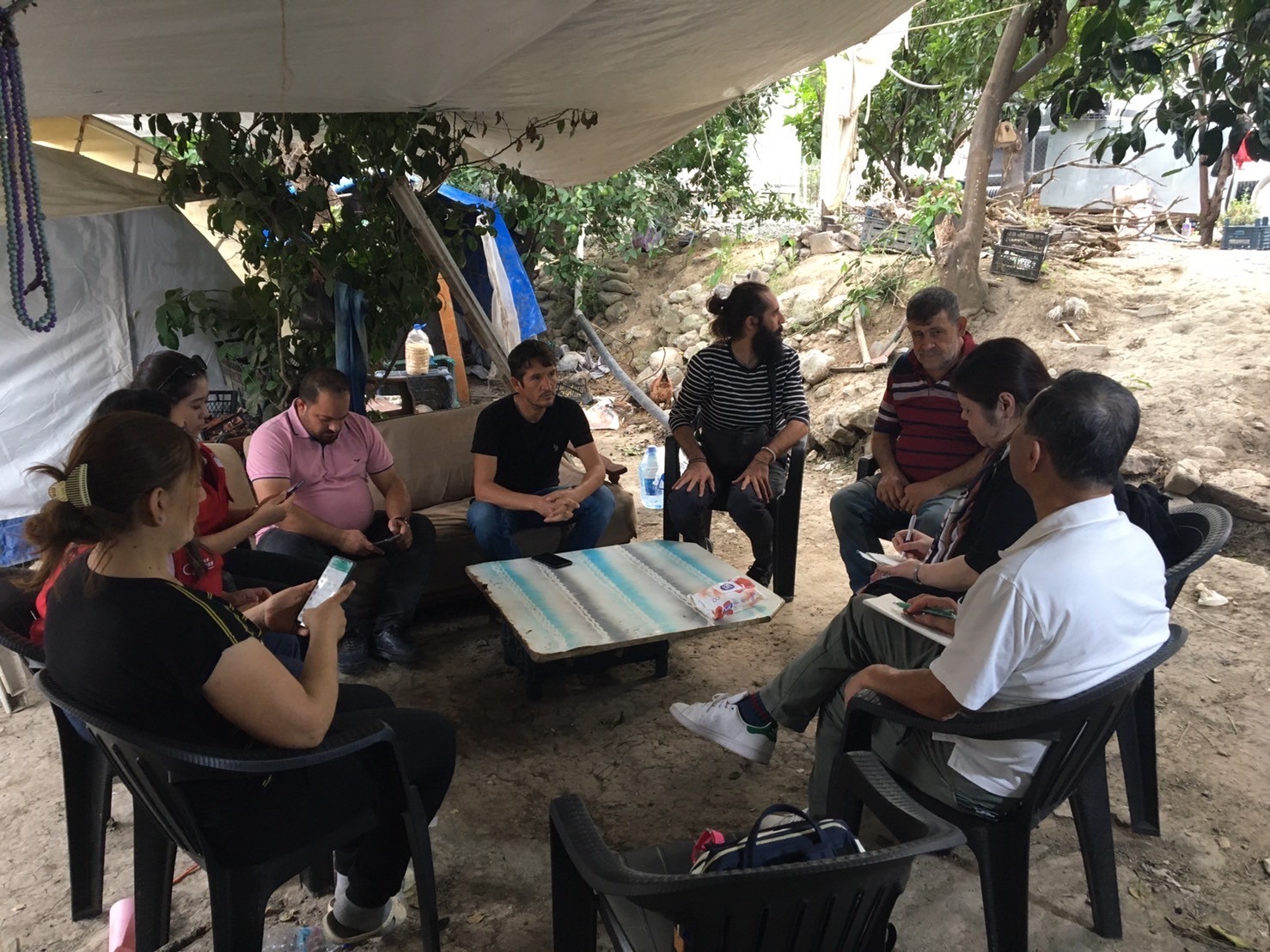
Then, the team visited two groups in Samandag, closer to the Syrian border.
One is a soup kitchen serving two to three thousand breakfasts and dinners
daily. The kitchen was not only a place to eat but also functioned as a
community where people could interact with each other. Another one was
a group of about fifteen women that grew out of the soup kitchen activities,
making bread, producing and selling specialty products such as mandarin
oranges and olives, and distributing the income earned according to the
amount of work done. Both groups cook and bake in plastic tents, and many
live in tents. The outlook for the future is bleak due to the continued
rise in prices and shortages of raw materials following the earthquake.
The team moved to Istanbul on the 28th and visited Caritas in Turkey, an
international Catholic NGO. Although Caritas itself belongs to a minority
group of Catholics in Turkey, it has been supporting other minorities in
Turkey, such as Syrians, Afghans, and Uzbeks. Concerning the earthquake
relief efforts, Caritas has assisted Afghan women in making textiles and
provided psychological support to women under great stress due to anxiety
and worry. Caritas is preparing plans to help people living in severe conditions
through the coming winter.
The three members of the team were Norio Yamakoshi, Deputy Secretary General
of WCRP/RfP Japan, Yoko Tateno (Gedatsu-kai), a Disaster Response Task
Force member, and Hiroyo Murayama from the WCRP/RfP Japan Secretariat.